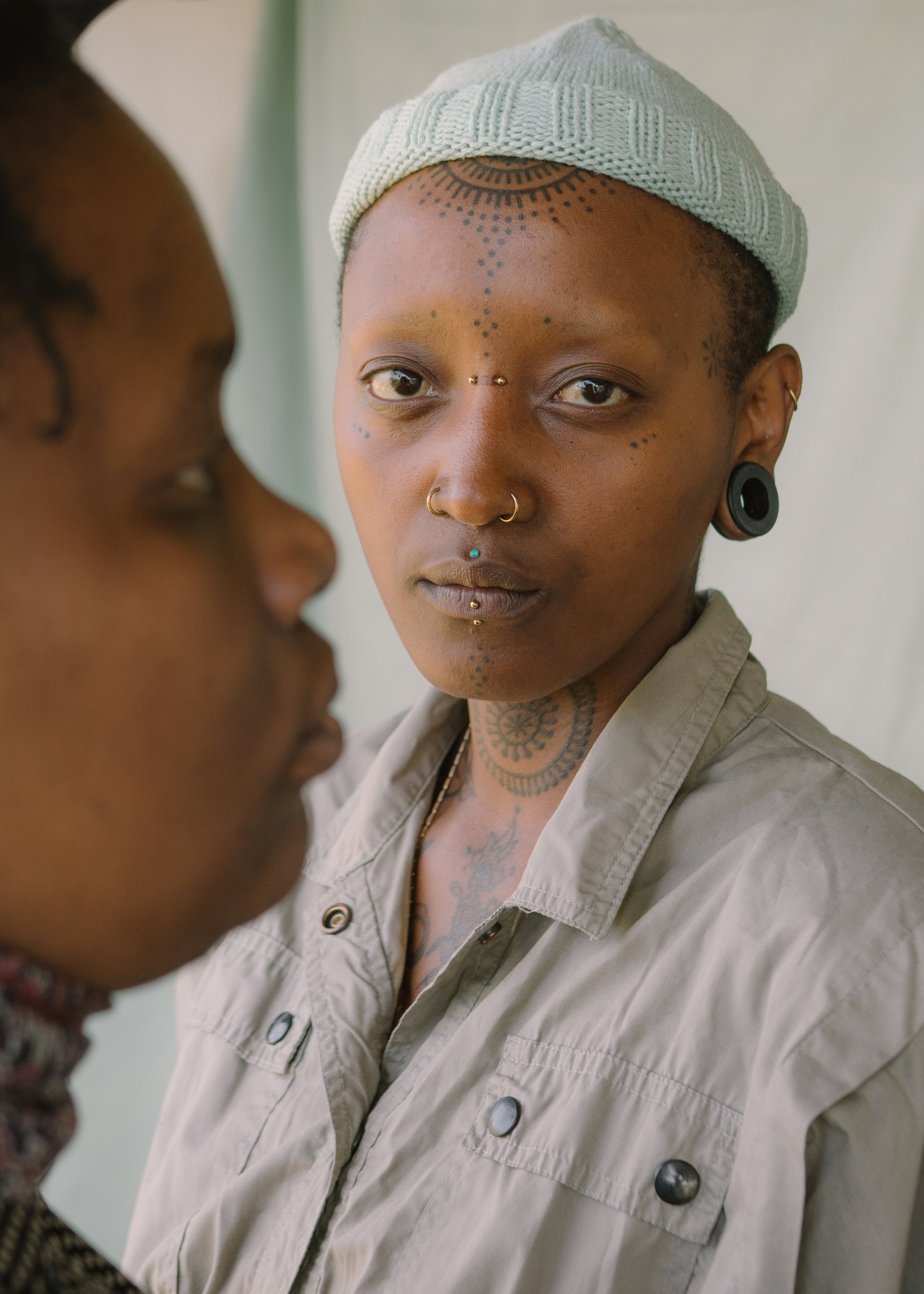
Liberation/Abolition-Based Therapy
At The Hinterlands, we believe in inner development for collective liberation.
Liberation/Abolition-Based Therapy centers the impact of systemic oppression and the pursuit of collective freedom within the therapeutic process. Rooted in abolitionist, decolonial, and disability justice frameworks, this approach challenges carceral, medicalized, and colonized models of mental health. Our Chicago-based psychotherapists hold space for grief, rage, resistance, and reimagining. We support clients in healing without assimilation or erasure.
We currently offer abolition-based therapy virtually in Illinois and Connecticut and in-person at our office in Irving Park, Chicago. Hybrid liberation therapy sessions are also available to support accessibility and choice.
Areas of Clinical Specialty
LGBTQIA+: We offer liberation-based, affirming therapy for the LGBTQIA+ community. Our queer therapists recognize the impact of systemic violence, heterocisnormativity, and cultural erasure. We support identity development, gender exploration, building chosen family, and healing from discrimination, without requiring assimilation or justification.
ENM/Poly Folks: Our therapists understand ethical non-monogamy and polyamory as valid relationship structures often marginalized by dominant culture. We offer nonjudgmental, abolition-informed support for navigating relational complexity, community care, and systemic stigma with autonomy and consent at the center.
BDSM/Kink Community: At The Hinterlands, kink is never pathologized. We view BDSM as a legitimate mode of identity, healing, and intimacy, often shaped by experiences of trauma and power. Our therapists provide space for exploration and empowerment outside dated frameworks of judgment or control.
Immigrants/Refugees: We provide culturally responsive care for immigrants, refugees, and first-generation individuals navigating systemic displacement, intergenerational trauma, and survival in diaspora. We honor your wisdom and resilience while centering decolonial healing, belonging, and liberation.
Substance Use: We approach substance use with a harm reduction lens that rejects shame and punishment. Whether you’re exploring sobriety, moderation, or curiosity about your relationship with substances, we support you with compassion, autonomy, and abolitionist ethics.
Chronic Illness/HIV: We understand that chronic illness and HIV are deeply shaped by systemic injustice: medical ableism, and racial health disparities. Our anti-oppressive therapy prioritizes body sovereignty, access, and resistance to the idea that wellness requires compliance or cure.
Autism/ADHD/Neuroqueer: We affirm neurodivergence as natural human variation, not a problem to fix. Our therapists work from a neuroqueer, anti-pathology lens and respect sensory needs, communication styles, and self-determined identities without demanding normalization.
Multi-Cultural/Mixed-Race: We provide BIPOC abolition therapy to hold space for the complexity of navigating multiple cultural identities and systemic racism. Our therapists support mixed-race and multicultural individuals in resisting assimilation, exploring belonging, and reclaiming fractured or colonized histories.
Artists/Performers/Craftsfolk: We offer care for creatives living at the intersection of labor, expression, and survival. Whether facing burnout, economic precarity, or identity crises under capitalism, our psychotherapists support your artistry as a site of resistance and liberation.
Religious/Spiritual Trauma: We support those recovering from religious control, spiritual abuse, and coercive belief systems. Our inclusive therapists create space to grieve, rage, and reclaim spirituality on your terms—free from theologies of domination or shame.
Parenting: We support caregivers committed to raising liberated children. Whether you’re unlearning inherited patterns, navigating systemic barriers, or parenting within queer, neurodivergent, or racialized contexts, we offer care that centers dignity, community, and repair.
Educators: We understand education as both a site of possibility and a system of harm. Whether you're facing burnout, institutional violence, or the emotional toll of teaching, we support educators as whole people with needs beyond productivity or performance.
Activists: We hold space for the toll of justice work. Whether you’re navigating burnout, disillusionment, or the violence of systemic pushback, our abolitionist therapists recognize activism as both a source of deep pain and a sacred path to collective healing.
Mad/Crip Folks: We serve Mad and Crip clients seeking care outside coercive medical systems. Our disability-affirming therapy resists pathologization, prioritizes consent and autonomy, and supports you in defining wellness on your terms, without surveillance or control.
What to Expect
No two therapy sessions look the same, especially when liberation is the goal. We begin by understanding your biography, culture, neurotype, and temperament, alongside the systems that have shaped your life. Together, we’ll explore your hopes for therapy, the barriers you’ve faced in seeking support, and the approaches that best align with your values. Abolition-based therapy isn’t about fixing you—it’s about creating space for healing outside carceral, medicalized, or colonized models of care. Identity, community, resistance, and collective survival are integral to the work.
Your first therapy appointment is a space for mutual discovery. You’ll get to know your therapist as much as they’ll be getting to know you. By the end of the session, we’ll discuss whether and how to move forward together, and we’ll also review logistics like scheduling, payment, and office policies. Our goal is to help you feel grounded, respected, and invited into a process of deeper connection with yourself, your people, and the world you’re trying to build.
-
Not at all. Justice-oriented therapy is for anyone seeking care that acknowledges the impact of harmful systems, whether or not you identify as an activist. This approach recognizes that we are all affected by oppressive structures and that healing is inherently political. Whether you're engaged in community organizing, navigating everyday injustices, or simply want therapy that doesn’t pathologize your pain, this work can meet you where you are.
-
Unfortunately, many people, especially those from marginalized communities, have experienced harm in therapeutic settings. At The Hinterlands, we hold that history with care. We welcome your skepticism, anger, grief, and boundaries. Abolition-based therapy resists the idea that therapists are authorities on your life. Instead, we work collaboratively, centering your autonomy and consent. You're allowed to take your time, set limits, and name what you need—including naming harm if it happens again.
-
The clinical therapists at The Hinterlands are in-network with Blue Cross Blue Shield PPO and Aetna. We are out-of-network with all other insurance providers, including Medicaid and Medicare. Payment is due at the time of service.
Using out-of-network benefits? We can provide monthly superbills and statements to support your reimbursement process. We accept HSA cards, Zelle, and all major credit cards.
-
The Hinterlands is committed to providing affordable therapy for the communities we serve. We offer a range of cash-pay options, including sliding scale therapy sessions. These rates are based on therapist availability and the type of treatment, and typically range from $25 to the full session fee.
Sliding scale slots are limited and tend to fill quickly. During your intake call, you can ask your therapist whether they currently have sliding scale availability.




